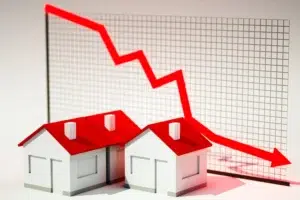Speculation vs Investment: Knowing the Difference for Smarter Financial Decisions
![]() Ujjwal Maheshwari, March 24, 2025
Ujjwal Maheshwari, March 24, 2025
In the ever-evolving world of finance, understanding how to grow your wealth is more complex than simply choosing where to put your money. The approach you take—whether you’re investing or speculating—can significantly impact your financial outcome. Many individuals enter the financial markets without fully understanding these distinctions, often blurring the lines between strategic investing and high-risk speculation.
While both involve the goal of generating profit, they differ in terms of risk level, time horizon, strategy, and expected outcomes. Knowing the difference can help you avoid costly mistakes, make smarter decisions, and achieve greater financial security in the long run.
What Is Investing?
At its core, investing is a disciplined approach to allocating resources (usually money) into assets with the expectation of future returns. These returns can be in the form of income, appreciation in value, or both.
Common Investment Types:
- Real Estate and Property Investment
- Stocks and Exchange-Traded Funds (ETFs)
- Bonds and Fixed Income Securities
- Index Funds and Mutual Funds
- Superannuation (for long-term retirement savings in Australia)
Key Characteristics of Investing:
- Time Horizon: Typically long-term, from several years to decades.
- Risk Level: Moderate to low, depending on asset type and diversification.
- Approach: Analytical, research-driven, and focused on fundamentals like cash flow, valuation, and market trends.
- Objective: Build sustainable wealth over time through strategic asset allocation and compounding returns.
Investing is typically guided by fundamentals like market research, performance data, and economic trends. Investors aim for steady growth and compounded returns over time, often with lower risk and diversification across assets.
What Is Speculation?
Speculation involves taking on higher risk with the hope of achieving higher returns in a shorter time frame. Unlike investing, speculation often relies on market timing, price volatility, and emotional decision-making rather than deep fundamental analysis.
Examples of Speculative Activities:
- Day trading stocks or crypto
- Investing in high-volatility assets with no intrinsic value
- Options, futures, and derivatives trading
- Buying into unproven startups or assets based on hype
- Participating in games of chance or betting markets
Speculation is sometimes compared to gambling. The element of chance and timing plays a significant role. Some individuals even find parallels between speculative trading and engaging in an online casino game, where risk and reward are tightly linked.
Example: Speculative investments can feel like a gamble, much like playing at an online casino—exciting and fast-paced but risky if not approached with caution.
Key Differences Between Investing and Speculation
| Aspect | Investment | Speculation |
| Time Horizon | Long-term (years to decades) | Short-term (days to months) |
| Risk Level | Moderate to low (with diversification) | High (volatile and uncertain outcomes) |
| Decision Drivers | Data, fundamentals, trends | Market momentum, news, emotions |
| Goal | Steady growth and wealth accumulation | Quick profits or big wins |
Why Investors Need to Understand the Difference
Understanding the distinction between investing and speculating is crucial, especially in today’s environment, where information spreads rapidly and new financial products (like cryptocurrencies or NFTs) blur the lines between sound strategy and risky bets.
Many new investors unknowingly speculate, lured by the promise of fast profits. This behavior often leads to poor decision-making, losses, and emotional investing. By identifying whether you’re investing or speculating, you can better align your actions with your risk tolerance, financial goals, and time horizon.
Managing Risk in Both Worlds
Even if you occasionally engage in speculative activities—such as trading high-volatility stocks or playing online casino games—it’s essential to allocate only a small portion of your resources to such activities. Most financial advisors recommend using “discretionary funds” for speculation or gaming—money you can afford to lose.
Tip: Just like an investor limits exposure to volatile assets, setting limits and managing time spent on speculative games or online casino activities can help maintain financial and mental balance.
Final Thoughts
Speculation and investing both have a place in the financial ecosystem, but they serve different purposes and require different mindsets. While speculation can be thrilling, it’s not a substitute for a solid investment strategy. Knowing when you’re investing for the future versus chasing short-term gains is key to achieving long-term financial success.
By educating yourself on these differences, staying disciplined, and seeking professional guidance, you’ll be better equipped to make confident, informed financial decisions—whether you’re buying your first property, diversifying your assets, or simply enjoying a game of chance for entertainment.
What are the Best ASX Stocks to invest in?
Check our buy/sell tips
Blog Categories
Get Our Top 5 ASX Stocks for FY25
Recent Posts
What Falling Interest Rates Mean for Australia’s Housing Market and Related Industries
The Australian economy is continuously influenced by movements in interest rates. Recently, the Reserve Bank of Australia (RBA) signalled a…
Here are the biggest tax implications of investing in stocks and how to slash your bill
The tax implications of investing in stocks are not often considered when you first start investing, although you may get…



